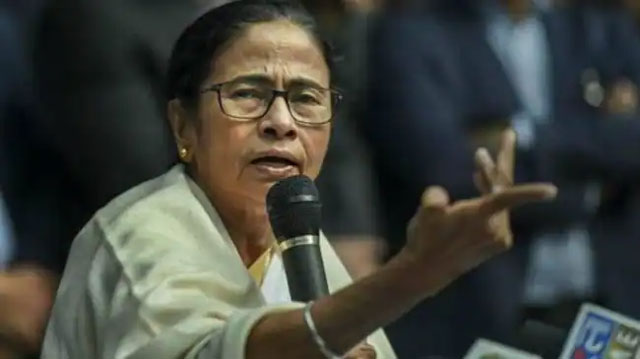Daijiworld Media Network – Kolkata
Kolkata, Nov 5: Months before the 2026 Assembly elections, the Trinamool Congress (TMC) government in West Bengal is grappling with growing discontent among sections of the backward Muslim community over the state’s revised Other Backward Classes (OBC) list. The controversy, which has sparked protests across the state, threatens to dent one of the TMC’s strongest voter bases — women and Muslims.
On October 23, thousands of Muslim youths took out a protest march in Murshidabad, marking the first large-scale demonstration by the minority community over the issue. The protesters allege that the newly issued OBC lists — published in May and June this year after a fresh state survey — have dropped several Muslim sub-castes while adding Hindu groups to the more advantageous “OBC A” category, which carries 10% reservation in jobs and education. Several Muslim groups have been shifted to the “OBC B” category, which offers 7% reservation.

As per the new classification, the OBC A list now includes 49 groups (35 Muslims, 14 non-Muslims), compared to 80 earlier (72 Muslims, 8 non-Muslims). The OBC B list remains at 91 groups, but with a near-even split between Muslims and non-Muslims.
“Thirty-seven Muslim groups have been removed — 16 from OBC A and 21 from OBC B — many of which are extremely backward,” said Manajat Biswas, president of the Progressive Intellectuals of Bengal, which is leading the protests. “Prominent Muslim groups such as Shershabadia, Khotta, Mullick, and Rajmistry have been shifted from OBC A to B, while large non-Muslim groups like Goala, Yadav, and Kumbhakar have been upgraded to OBC A,” he added.
The impact has already been felt in educational institutions. Reports indicate that several Muslim students lost out on postgraduate and PhD admissions in universities like Cooch Behar’s Panchanan Barma University and Bankura University due to the reclassification. Moreover, no Muslim candidates were selected among the 87 chosen for principal posts in colleges by the West Bengal College Service Commission.
The situation has caused concern ahead of the School Service Commission recruitment process, which must conclude by December 31 following a Supreme Court order. The Calcutta High Court has also directed district judges to keep ongoing OBC recruitment processes in abeyance until further notice.
“The question is why the government removed 37 Muslim groups, many from the most backward OBC A list, while upgrading others without clear justification,” asked Anisur Rehman, a member of the Progressive Intellectuals of Bengal.
The dispute stems from a legal battle dating back over a decade. In 2010, the then Left Front government added 66 Muslim sub-castes to the OBC list, covering around 87% of the state’s Muslims — a move widely seen as an attempt to retain minority support.
The Mamata Banerjee government followed in 2012 by adding 35 more groups, 33 of them Muslim. However, the Calcutta High Court struck down the 2012 law last year, directing the government to prepare a fresh list in accordance with national norms. The issue now awaits a hearing in the Supreme Court on November 6.
Acknowledging the discontent, TMC MLA and West Bengal Commission for Backward Classes member Mosharaf Hossain said, “Some Muslims are unhappy with the new list. However, the survey was done properly, and the matter is before the Supreme Court. Those with grievances should approach the court.”
Experts, however, have questioned the methodology of the new survey. Political anthropologist Adil Hossain of Azim Premji University said, “The Commission conducted a sample survey without following proper methodology. A comprehensive survey, like in Bihar or Telangana, was necessary to assess representation in jobs and education.”
Researchers like Sabir Ahamed from the Pratichi India Trust have warned that the new classification could further marginalize backward Muslims. “OBC reservation had opened limited but crucial opportunities for socially disadvantaged Muslim groups. The new notification pushes them back to the margins,” he said.
Protesters are now demanding that the government raise the OBC quota ceiling to 25% and restore the earlier list until a comprehensive survey is conducted. With elections approaching and resentment deepening among one of its core constituencies, the TMC faces a growing challenge to retain its minority base.